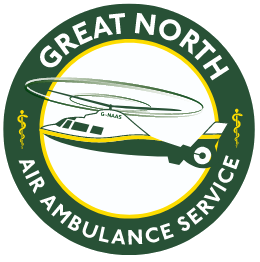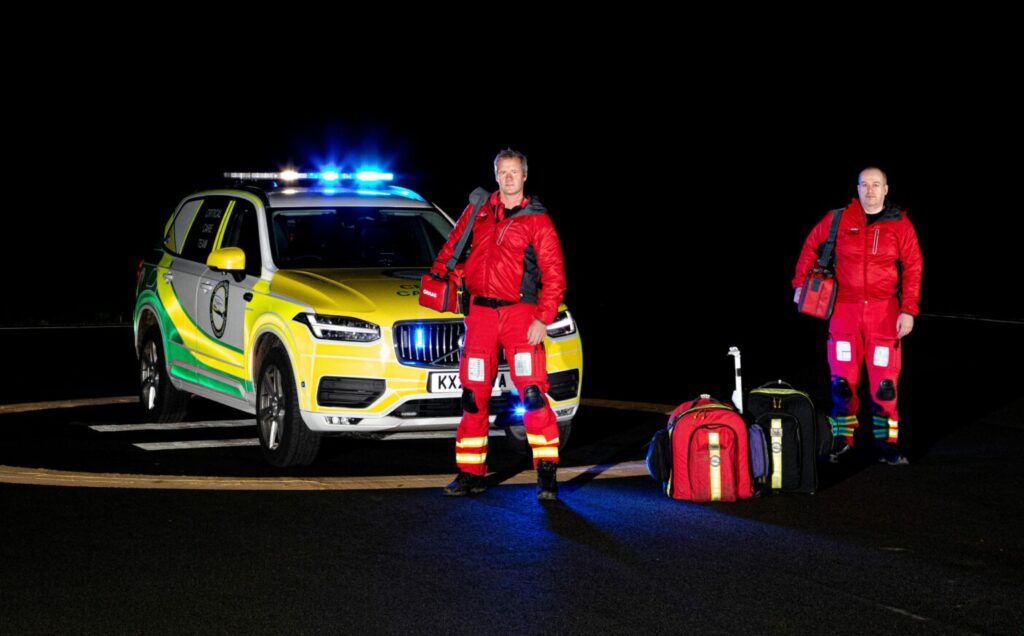The wife of a man who suffered a cardiac arrest while on their local beach near Berwick has praised the people who collectively saved his life.
Tracey Snell, 48, from Scremerston, Berwick-upon-Tweed, had travelled to Cocklawburn Beach with her husband Brian Snell, 67, who is affectionately known as ‘Bounce’.
She was planning to walk their dog Teddy, while her husband collected and chopped up firewood which had swept up on the beach.
Tracey said: “We chucked a chainsaw in the car, parked right next to the beach and took the dog down on a Saturday morning. He was feeling absolutely fine, he was bright as a button and there was no indication that something would happen.”
Recalling the incident, which occurred on 11 November 2023, Tracey said: “I heard the chainsaw whirring away and then it stopped, so I went back.
“He’s very safety conscious and wouldn’t leave his chainsaw lying around, so the minute I stepped up from the beach and saw the chainsaw on the grass I immediately thought, that’s odd.”
Upon approaching the car, the dog started barking and Tracey saw her husband slumped in the back of the car.
She said: “I thought he’d just lifted a log in and was having a breather, so I shouted across to him are you alright?
“I went over and shook him, and he fell over and bumped his head. His face was the darkest blue and it was bright red around his lips and his eyes were glazed over.
“I used to be a nurse and I could see he wasn’t breathing, and it was very scary.”
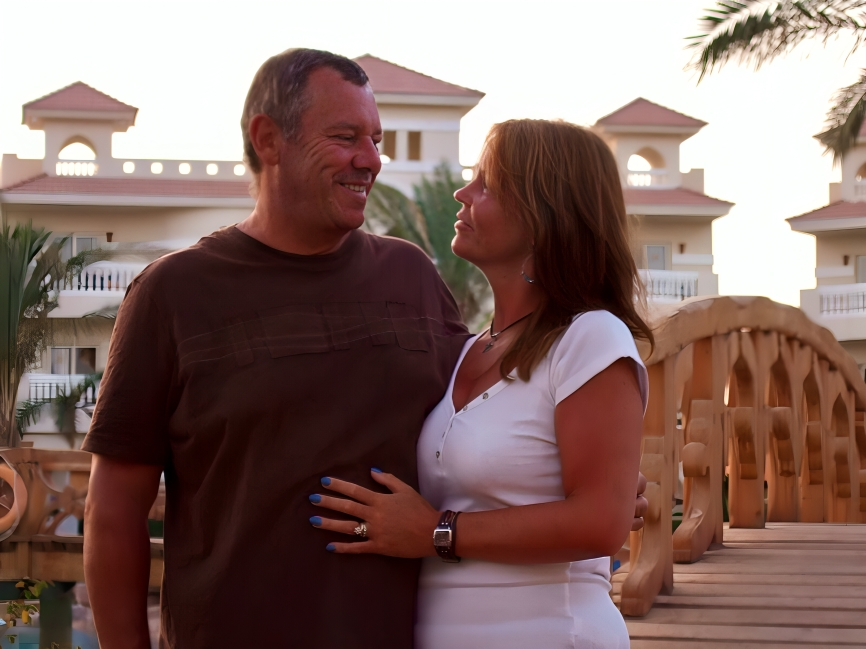

Tracey rang for an ambulance and while on the phone she flagged down a member of the public who was nearby.
She said: “He was a local chap called Neil and he took over the phone call while I performed CPR on my husband who had no output for at least 10 minutes.
“A pharmacist called Nikki asked if I needed help and she took over the chest compressions and helped with my attempts to resuscitate him until the ambulance arrived.”
Paramedics from the North East Ambulance Service (NEAS) arrived on scene and used a defibrillator on Bounce to help restart his heart.
Tracey said: “The paramedics did a sterling job taking over the resuscitation though it took several attempts with the defibrillator and five more minutes of chest compressions from Neil before they finally got a pulse. Several minutes in, his heart stopped again but still they persevered and eventually got it restarted for the second time.”
In addition to NEAS, the coastguard and the Great North Air Ambulance Service (GNAAS) were requested to attend the scene and arrived shortly afterwards.
Tracey said: “As soon as the team from GNAAS arrived they took over from that point and said they were going to sedate him to prevent him thrashing about and get him on the helicopter. They had landed on the road, so he was able to be carried but it took several people to lift him.
“I know they don’t tend to let on how bad it is, but they were talking to me and reassuring me, and everyone was fantastic. I gave him a little kiss and saw him being placed inside the helicopter before they flew him to hospital.”
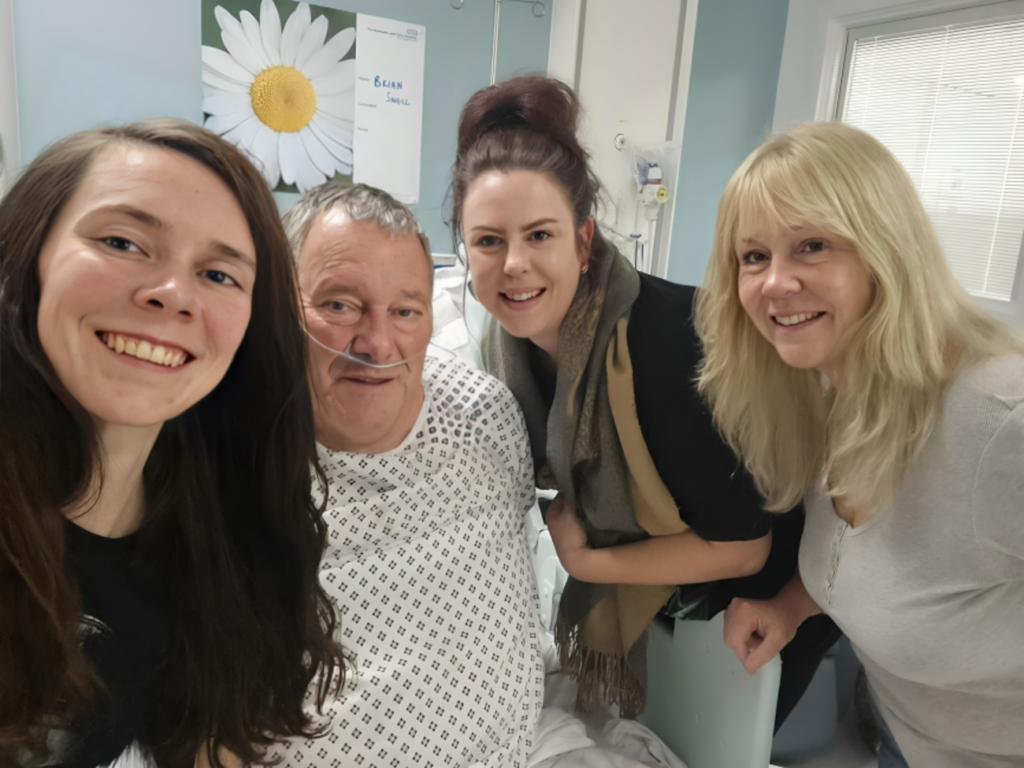

Bounce was airlifted to the Royal Victoria Infirmary (RVI) in Newcastle where he remained an induced coma for three days.
He has no recollection of the events that happened, and despite breaking a few ribs from the CPR, he is grateful to be alive and is now back home making slow and steady progress.
Tracey added: “For those two people who helped me perform CPR on my husband’s lifeless body for fifteen minutes, the medical professionals have told me that we categorically saved his life, he would not have made it if we hadn’t maintained that level of care in those vital moments.
“I would like to say the most heartfelt thank you to the amazing GNAAS crew, NEAS paramedics, the Northumberland Coastguard, the police and a couple members of the public who came selflessly to my assistance.”
Alan Stewart, a paramedic based at Berwick said: “We don’t often hear of what happened to patients post our care, so I’m delighted to hear that Brian is still with us and making a good recovery.
“The incident shows the importance of good early CPR from bystanders prior to the arrival of trained medical staff. The patient’s wife and other members of the public that assisted did a fantastic job which gave the patient a good chance of survival and recovery. They are commended for their actions under difficult circumstances.
“I would also like to thank all the other services involved – GNAAS, the coastguard and police.”
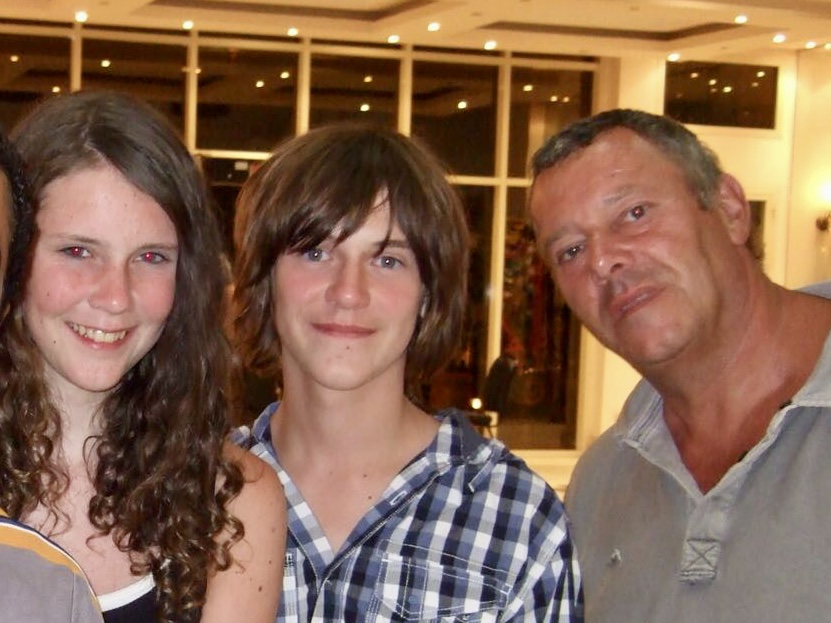

Louise Brown, clinical care assistant at Berwick said: “I am so pleased to hear that Brian is still with us and is making steady progress. As road staff we find it hard not knowing what happened to patients after traumatic events like this.”
Dr Lyle Moncur from GNAAS added: “We are so glad to hear that Bounce is doing well and we were able to play our part in the chain of survival.
“We put him in a medically induced coma to stabilise his condition before flying him to the RVI but it was the combined effort of CPR by his wife and bystanders and early defibrillation by NEAS that ultimately gave him the best chance of survival. Thank you also to the police and coastguard who assisted in this incident.”
Senior Coastal Operations Officer Daniel O’Connor said: “All of us at HM Coastguard are very glad to hear that Brian is back at home and making progress with his recovery.
“I commend the actions of Mrs Snell, bystanders, medical staff and the Coastguard Rescue Officers who helped that day. I hope Tracey, Brian and Teddy will be back out enjoying our beautiful coastline soon.”

